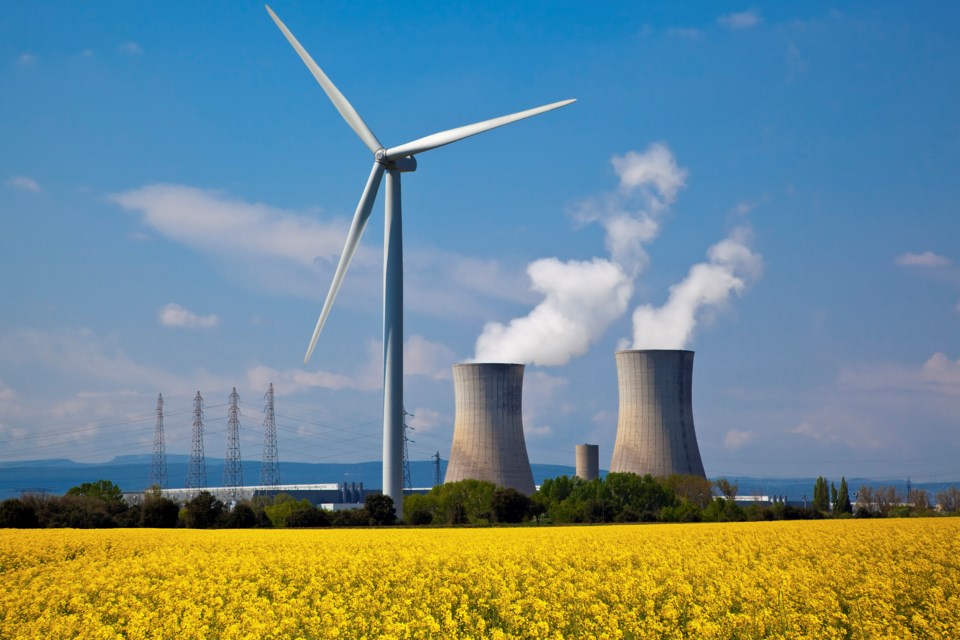"At COP26, the world noticed that it needs clean electrification to fast track its climate goals," Environment Minister Warren Kaeding said at a virtual panel on Monday.
Keading appeared with energy ministers from Ontario and New Brunswick to tout their plans to roll out the reactors in coming years as Canada promises to wind down its carbon emissions. Alberta also signed on in April.
Researchers say there's little doubt nuclear power will play a role in a low emissions future, but unknowns like public opinion may complicate matters.
Saskatchewan plans to have its first reactor online by 2032, with three more to follow by 2042.
Those reactors may be a helpful tool to fight climate change, but Saskatchewan shouldn't put all its eggs in one basket, noted Martin Boucher of the Johnson Shoyama Graduate School of Public Policy.
Boucher said there's lower hanging fruit that could be considered without the lengthy development of a new technology — like making the housing stock more efficient and deploying more renewable energy sources.
"If you're just looking at emissions and the best strategy to reduce emissions locally here in Saskatchewan, I'd be a bit skeptical in this approach," he said.
A report this year estimated the reactors' impact on Saskatchewan's gross domestic product at $8.8 billion, while preventing 73 megatonnes of cumulative emissions the province would otherwise generate between 2027 and 2050.
Kaeding told the panel renewable energy like wind and solar power would be supplementary sources, but wouldn't provide baseline power to the province.
John Gorman, president of the Canadian Nuclear Association, said in an interview that the reactors are the path for Saskatchewan to meet emissions targets and to decarbonize sectors like mining and fertilizer production.
"The question becomes, 'What's the magnitude of that? How much generation will we need from nuclear to reach our goals?' " said Dale Eisler, a senior policy fellow at the Johnson Shoyama Graduate School of Public Policy.
"But I think there's there's little doubt that the magnitude of the challenge of net zero is going to require a role for nuclear power in the future."
A survey Eisler and Prof. Margot Hurlbert reported in 2020 found Saskatchewan residents who were concerned about nuclear reactors typically cited issues around "risk and safety, the management of nuclear waste, lack of knowledge and the belief they were hypothetical and years from development."
Nuclear energy nonetheless plays a role in future scenarios, according to Hurlbert, who has served as an editor and author for the Intergovernmental Panel for Climate Change and is the Canada Research Chair in Climate Change, Energy and Sustainability Policy.
"But it's this public opinion and the unknown of the future on how we're going to transition and what exactly that energy and transportation infrastructure is going to look like going forward — that's the big, interesting discussion," she said.




